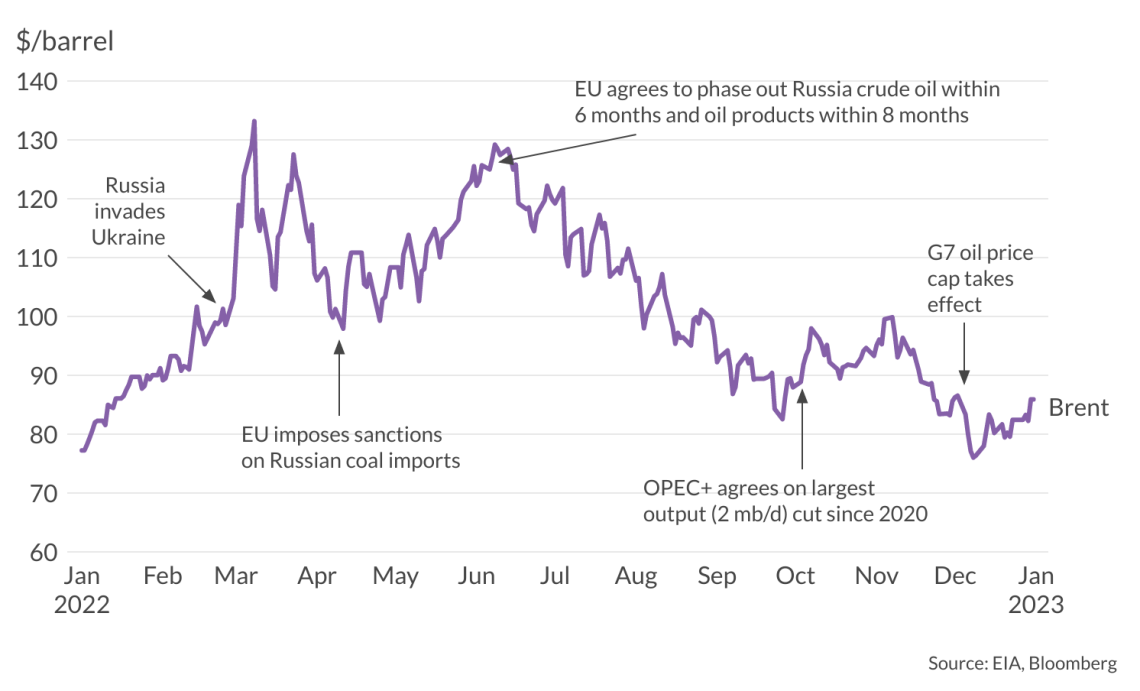What Happened
On June 12, 2025, crude oil prices experienced a significant surge, with U.S. West Texas Intermediate (WTI) rising by approximately 9.66% to $74.64 per barrel and the global benchmark Brent crude increasing by 9.27% to $75.79 per barrel. This spike in prices followed Israel’s military airstrikes against Iran, which targeted key components of Iran’s nuclear and ballistic missile programs. Israeli Prime Minister Benjamin Netanyahu described the operation as a necessary measure for national self-defense, stating that it would continue until the perceived threat was neutralized.
The airstrikes were conducted without U.S. support, as clarified by U.S. Secretary of State Marco Rubio, who emphasized that the U.S. was not involved in the strikes and was focused on protecting American interests in the region. The situation escalated further with reports of significant casualties, including the death of Hossein Salami, the Commander-in-Chief of Iran’s Revolutionary Guards Corps, which has raised concerns about potential retaliatory actions from Iran.
Key Details
- Price Movement: Crude oil futures saw a jump of up to 13% during the trading session, marking the largest single-day gains since 2020.
- Current Prices: As of the latest reports, WTI was priced at $74.64 per barrel, while Brent crude was at $75.79 per barrel.
- Military Action: Israel’s airstrikes targeted Iran’s main enrichment site at Natanz and its ballistic missile program, as stated by Prime Minister Netanyahu.
- U.S. Position: Secretary of State Rubio confirmed that the U.S. was not involved in the military action and reiterated the importance of protecting U.S. forces in the region.
- Iran’s Response: Iranian state media reported significant casualties, including the death of a high-ranking military official, which could lead to escalated tensions and potential retaliatory strikes against U.S. or Israeli targets.
Multiple Perspectives
The recent developments have elicited various interpretations from analysts and political figures. Andy Lipow, president of Lipow Oil Associates, expressed concern that Iran might retaliate against U.S. interests, which could disrupt oil supplies and lead to higher gasoline and diesel prices in the U.S. This perspective highlights the interconnectedness of geopolitical events and oil market stability.
Conversely, Saul Kavonic, head of energy research at MST Marquee, noted that the oil markets had previously downplayed geopolitical risks, suggesting that the recent airstrikes serve as a “wake-up call” regarding the immediacy of these risks. Kavonic warned that retaliatory actions could escalate tensions further, potentially spiraling out of control.
The differing viewpoints underscore the complexity of the situation, with some analysts focusing on the immediate market implications of the airstrikes, while others emphasize the broader geopolitical ramifications and the potential for increased military conflict in the region.
Context & Background
The surge in oil prices is rooted in the historical volatility of the Middle Eastern geopolitical landscape, particularly concerning Iran and Israel. The region has long been a focal point for international energy markets due to its significant oil reserves and the strategic importance of oil supply routes. Previous conflicts and tensions have often resulted in fluctuations in oil prices, as markets react to perceived threats to supply stability.
In recent years, oil prices had been relatively stable despite ongoing geopolitical tensions, leading analysts to suggest that the market had become somewhat desensitized to such risks. The sudden spike in prices following the Israeli airstrikes indicates a shift in market sentiment, as traders reassess the potential for conflict to impact oil supply.
The U.S. has historically played a significant role in Middle Eastern affairs, often acting as a mediator or supporter of certain nations. The current administration’s stance, as articulated by Secretary Rubio, reflects a cautious approach to direct involvement in military actions, emphasizing the protection of U.S. interests while allowing allies like Israel to act independently.
What We Don’t Know Yet
As the situation continues to unfold, several uncertainties remain. It is unclear how Iran will respond to the airstrikes, and whether any retaliatory actions will escalate into broader military conflict. Analysts are also monitoring the potential impact on global oil supply and prices, particularly if Iran targets oil infrastructure or shipping routes.
Additionally, the long-term implications of this military action on U.S.-Iran relations and regional stability are yet to be determined. The evolving nature of the conflict could lead to further military engagements or diplomatic efforts to de-escalate tensions, but the outcomes remain uncertain.
In summary, the recent surge in crude oil prices is a direct response to heightened geopolitical tensions following Israel’s airstrikes on Iran. The situation is fluid, with potential ramifications for both the oil market and broader international relations, underscoring the intricate link between energy prices and geopolitical stability.





